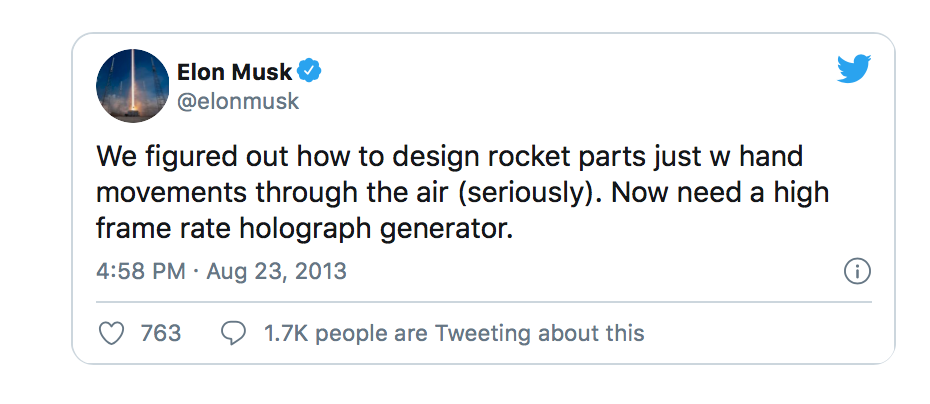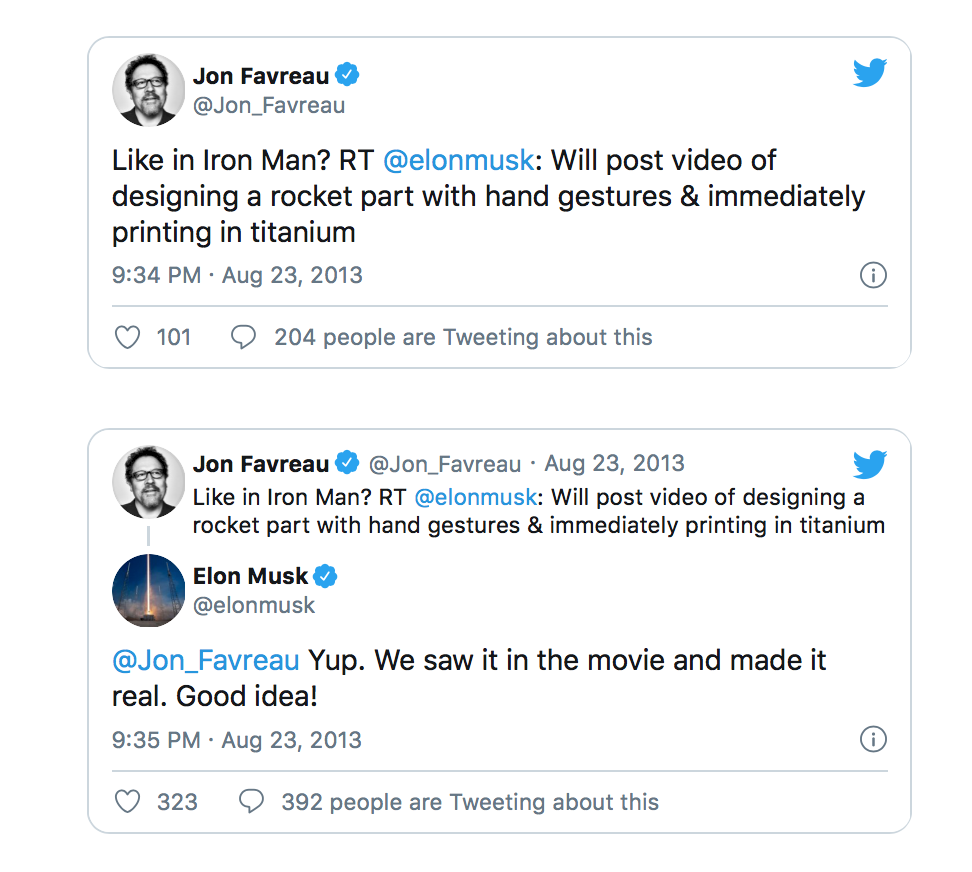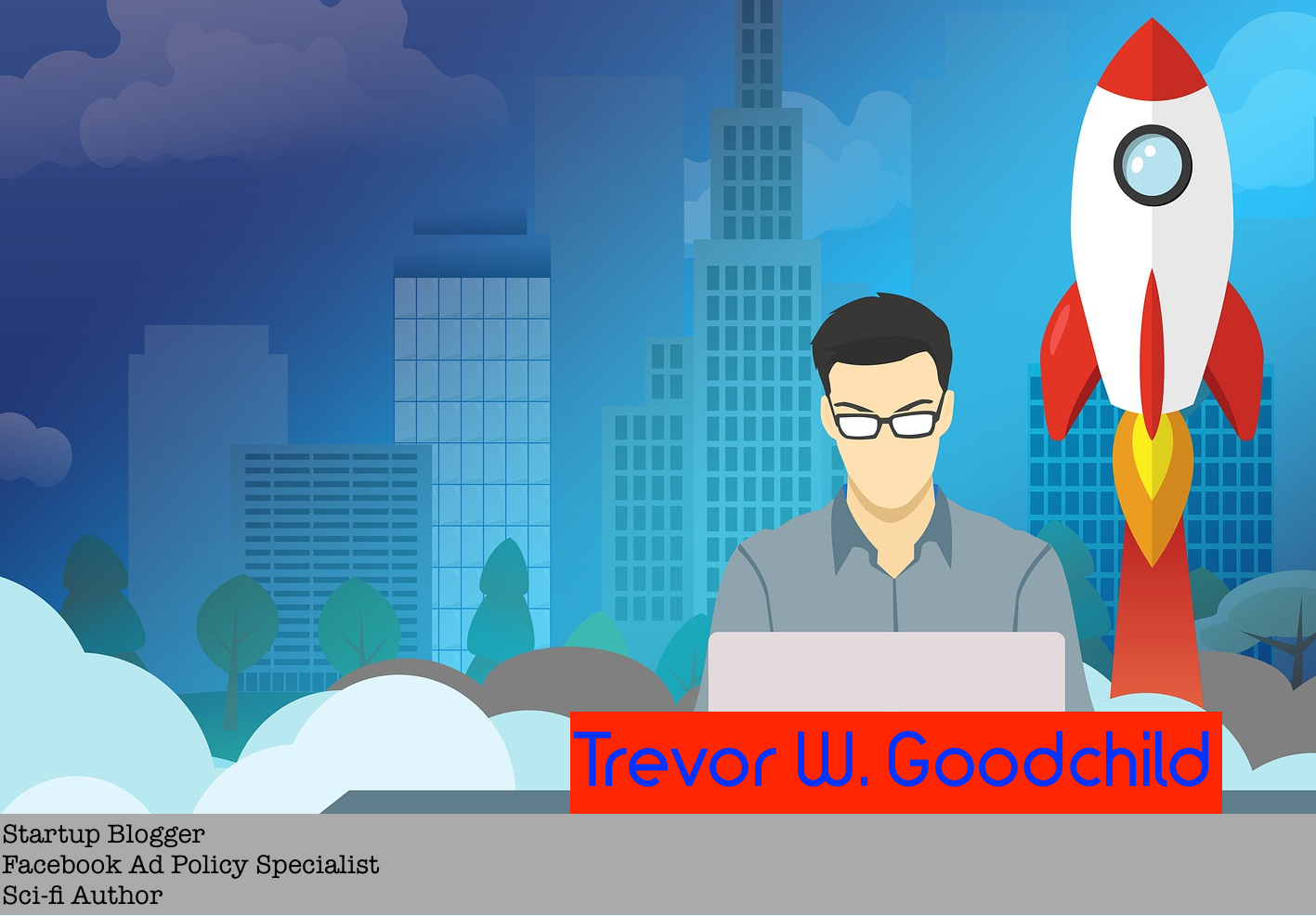
Credit: Tech Insider/Recode/NASA
While Amazon & eBay are killing it in the ecom sphere, Elon Musk is crushing it in a real life Tony Stark way.
Musk co-founded PayPal, created and owns Tesla, SpaceX, Neuralink and The Boring Company that's working on hyperloop trains to go from New York to Washington in 29 minutes.
So how does a private citizen compete with NASA and launch his own rocket into space?
It starts with rejecting everything you've ever learned. Doubting the conclusions about everything concerning a problem you're trying to solve until all you're left with is the distilled truth.
Most companies in the beginning have experimental phases, where intrinsic motivation and curiosity drives most of their innovation.
But what happens over time? Processes form and management becomes to afraid to mess with an existing system, and so that system stagnates.
Breaking even becomes the benchmark instead of pioneering or breaking ground in a new field.
Elon Musk turned the space industry on its head by applying first principle thinking, instead of getting stuck thinking about things in the same way.
Are you familiar with invisible rules?
While that sounds a bit abstract invisible rules affect us every day.
These are the habits and behaviors that are so ingrained they exist as almost an invisible constitution or charter we unconsciously follow in business and in personal endeavors.
When something challenges habitual ways of thinking about an established mode of acting many get defensive and stand up for...their own limitations.
First principle thinking is one of the best ways to undo these invisible rules that limit our ability to innovate.
First principle thinking reverse-engineers complex problems and frees our minds to creative possibility. Sometimes called “reasoning from first principles,” the concept is to break down complex problems into simple elements and then reassemble them from the ground up.
It’s one of the best ways to learn how to think for yourself and unlock your own creative potential, and move from linear to non-linear results exponentially as Elon Musk has done.
In early 2002, Musk founded the company that would be known as Space Exploration Technologies, or SpaceX, with over a $100 million of the money received from the PayPal sale. Musk's goal was to make spaceflight cheaper by a factor of 10.
SpaceX's end goal is to bring economies to scale for colonizing Mars. Musk said that SpaceX won't file for an initial public offering until the "Mars Colonial Transporter" is flying regularly.
When PayPal was sold to eBay, Musk went to the beach in Rio de Janeiro but he wasn't just there for the scenery; he was reading Fundamentals of Rocket Propulsion.
Elon Musk spotted the trend that despite everything else getting smaller and cheaper like computers and smart phones, rockets get more expensive without improving.
Musk went to Russia to see if he could get rockets any cheaper than the American ones which were a stunning $130,000,000 dollars.
He met with many Russian officials, drank lots of vodka but even trying to grab a decommissioned intercontinental ballistic missile (missiles de-armed of weapons) the cheapest he could find was $20 million.
It was also pretty slim pickings if you're looking for a venture capitalist to fund your trip to Mars so the real life inspiration for Marvel's Iron Man had to regroup.
By the way, the Iron Man filmmaker Jon Favreau inspired Elon Musk to make tech that was only in a comic book to become a reality:


"I think it's important to reason from first principles rather than by analogy," Musk said in an interview with Kevin Rose.
"The normal way we conduct our lives is we reason by analogy," he said. "[With analogy] we are doing this because it's like something else that was done, or it is like what other people are doing. [With first principles] you boil things down to the most fundamental truths … and then reason up from there."
Elon used first principle thinking to overcome the road block that progress creates, meaning processes are created by definition to look backwards and not be questioned.
After failing to get affordable rockets from Russia, on the way back to America, Elon Musk told the aerospace consultant who accompanied him there that,"I think we can build a rocket ourselves."
Elon Musk decided to ignore everything he knew and that the public knows about the process of sending a rocket into space (via NASA).
Rather than tackle this from a 30,000 view, Musk went microscopic and broke apart the physics involved in sending a rocket into space.
Tesla's founder examined what rockets are made out of:
Titanium, copper, carbon fibers and aerospace-grade aluminum alloys.
Then, still using first principle thinking he researched what the cost of these materials is on a commodity market and discovered that the materials of a rocket costs around 2% of the selling price.
This was due in large part to the outsourcing within the space industry for all the work in building the individual parts for cutting the metal and shaping the atoms.
Musk decided to set up shop with vertical integration owning the entire process of manufacturing and launching rockets.
SpaceX manufactures around 80% of their own rocket components and does some pretty innovative sourcing for their raw materials.
One SpaceX employee bought theodolite, which is used to track and align rockets, for $25,000 on eBay after finding out the new version cost too much.
This type of first principle thinking was used across the board for SpaceX.
Instead of using expensive materials for handles of hatches, they used spare parts from bathroom stall latches.
SpaceX avoided paying through the nose for astronaut custom-built harnesses and used race-car safety belts.
They swapped out specialty onboard computers that range in price up to $1 million dollars with the same type of computer that you're using in an ATM for only $5,000.
The way of thinking by analogy, following old established-process-based routines would have you think, well if NASA can't use the same rocket twice, I doubt anyone else can.
Musk turned this whole fallacy on its head.
This approach of first principle thinking truly reached the pinnacle of rocket science innovation when Elon Musk's SpaceX designed rockets to be re-usable.
And did so successfully not just theoretically.
Falcon 9 is a reusable, two-stage rocket designed and manufactured by SpaceX for the reliable and safe transport of people and payloads into Earth orbit and beyond. Falcon 9 is the world's first orbital class reusable rocket.
[Source:SpaceX.com]
Today's blog isn't about hero-worshipping Elon Musk - it's a tale told about how to learn from what's already working but in a way that even defies this sentence.
When you talk about reverse engineering a sales funnel or an existing business model, and making improvements on it, or the poster boy formula in blogging or YouTube it's a way of learning from what's already working without really learning.
Shifting to first principle thinking means taking apart a process, forgetting what you already know about it and seeing if there is a non-linear way to make the leap to new ideas.
Even our keyboards are flawed, if you look at the top row of keys you'll see it's designed to spell out "typewriter" to sell more typewriters not for an ergonomic method of typing the alphabet into words efficiently.
But it's a process, it's just "the way things are" so we accept it.
¯\_(ツ)_/¯
Elon Musk didn't. And his results speak for themselves.
Musk cherry-picked the best, brightest avionics engineers -many formerly at NASA- and gave them the freedom to build rockets instead of push paper, get stuck in procedure and never see their dreams materialize.
Musk hosts a regular Friday lunch where anyone can ask questions about where SpaceX is going.
So the next time you're faced with a wall you can't seem to break down to either solve a problem, innovate a product, design a new marketing strategy or invent a solution - try first principle thinking.
You may just find a winner.
What something you're trying to solve for right now?
Comment below!

. . .
Enjoyed this blog? Signup here to get updates on new startup blogs.
Is Facebook not explaining why they disapproved an ad?
I worked at FB for years and offer FB Policy Consulting here
Available for freelance writing and guest posting on your blog: blogger@jetskishaman.com






Leave a Reply